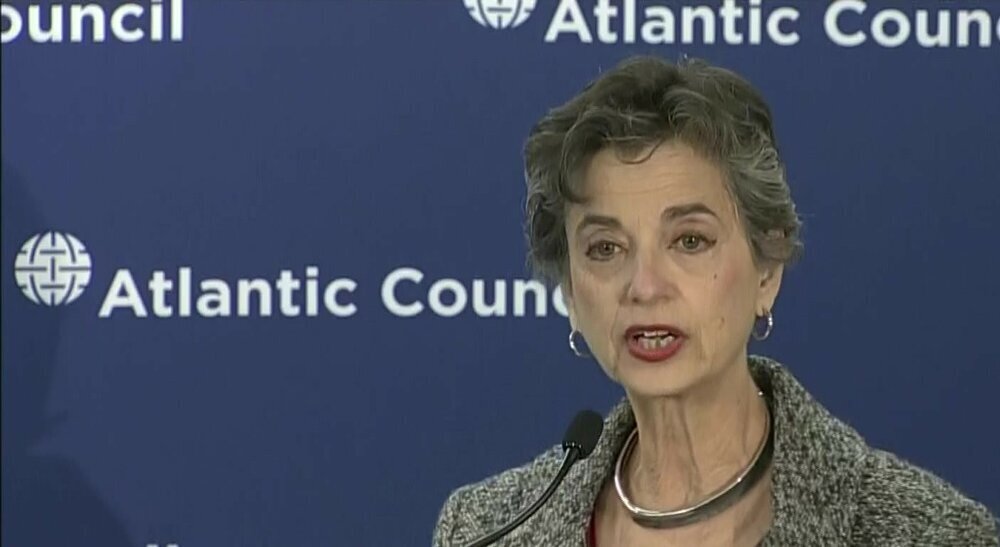Iran has every right to distrust U.S.: American foreign policy expert

TEHRAN – Pointing to U.S. unilateral policies under Donald Trump’s presidency, an American foreign policy expert says Iran is very rightful in distrusting the U.S.
“Iran has every right to distrust U.S. promises after what happened under Trump,” Barbara Slavin tells the Tehran Times.
“However, Iran would still benefit from sanctions relief even if it only lasts a few years and most importantly, could gain access to some $100 billion in hard currency frozen in foreign bank accounts,” Slavin says.
The nuclear talks to revitalize the JCPOA were suspended after the June 18 presidential election in Iran. The new government in Iran has been insisting that it only seeks result-oriented talks and it does not want talks for talks.
“The U.S. has been punished for the Trump withdrawal by a loss of faith in U.S. promises globally and a big diminution of U.S. influence.”Late on Friday, Iran’s new chief negotiator Ali Bagheri tweeted that the Iran will resume nuclear talks with the aim of lifting “unlawful and inhumane sanctions” against Iranians.
Bagheri made the announcement after phone talks with Enrique Mora, Deputy Secretary-General of the EU External Action Service, who serves a coordinator of nuclear talks between Iran and the West.
Analysts say Iran is not hopeful about the result of the talks largely because President Joe Biden has refused to commit his administration to lift the sanction on Iran for the rest of his term, even if Iran fully complies with the nuclear deal.
Slavin believes Iran looks for the maximum possible sanctions relief as well as guarantee that sanctions won’t return impulsively as they were under the Trump presidency.
Following is the text of the interview:
What are the major differences between Iran and the U.S. regarding the nuclear talks? Don’t you think that Iran has right to distrust the U.S. given the experience that Trump quit the 2015 nuclear deal while Iran was fully honoring its commitments?
Iran wants the maximum possible sanctions relief as well as some guarantee that sanctions won’t be reimposed capriciously as they were under the Trump administration. Iran has every right to distrust U.S. promises after what happened under Trump. However, Iran would still benefit from sanctions relief even if it only lasts a few years and most importantly, could gain access to some $100 billion in hard currency frozen in foreign bank accounts.
According to information obtained by Responsible Statecraft, the impasse is not because of an Iranian sense of immunity to pressure, but largely because President Biden refused to commit to keeping sanctions lifted on Iran for the rest of his term, even if Iran rejoins and complies with the nuclear deal. What is your opinion?
Rob Malley, the U.S. envoy, has promised that the U.S. would not leave the agreement for frivolous or spurious reasons. I think the problem here is that no U.S. president can make this kind of iron-clad pledge when Iran might take other actions so damaging to U.S.-Iran relations that it would be politically impossible for the U.S. to remain in the agreement. Remember the JCPOA was never built on trust but on verification. It was also supposed to be the “floor, not the ceiling” for U.S.-Iran relations. We have lots of other issues to discuss beyond the nuclear question.
Apparently the nuclear dispute is not resolvable based on technical debates. This is a political issue that is rooted in distrust between the U.S. and Iran. For example, the U.S. can impose new sanctions under the pretext of a missile program or Iran’s role in the region. If Iran was a U.S. ally like Saudi Arabia, there would be no dispute. What is your comment?
The U.S. distinguishes between nuclear-related sanctions – primarily on Iran’s oil exports and banks – and non-nuclear related sanctions. The Biden administration has been careful to sanction mostly individuals for non-nuclear matters, such as human rights abuses or providing drones to militias, not going after entire sectors of the Iranian economy like Trump did. The U.S. has also shown its displeasure with Saudi Arabia by the president snubbing MBS and halting support for the Saudi war in Yemen. However, Saudi Arabia is a long-time partner of the U.S. so it’s not appropriate to compare with Iran, which has been an adversary for more than four decades.
Do you predict Iran and the U.S. will agree on a new different deal in case the diplomatic efforts to revive the JCPOA fails?
No, I do not. It’s back to the JCPOA or nothing, at least for the next few years, which is very worrisome.
Do you think the world must accept this reality that U.S. successive administrations may breach their international commitments without being punished?
Well, I would argue that the U.S. has been punished for the Trump withdrawal by a loss of faith in U.S. promises globally and a big diminution of U.S. influence. Plus, Iran’s nuclear program is growing again unchecked. Those are serious consequences.
Leave a Comment